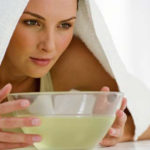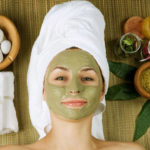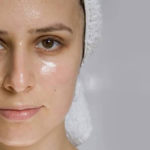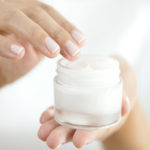Ginseng Tea: The Ultimate Guide to Its Health Benefits
Known as the “king of all herbs,” ginseng and its tea form have become renowned for their wide range of health benefits. In traditional medicine, ginseng is believed to nourish the qi, enrich the blood, and produce body fluids.
Derived from the precious root of the ginseng plant, ginseng tea is celebrated for its ability to combat aging, promote overall well-being, and regulate blood sugar and blood pressure levels. Notably, consuming ginseng tea in the morning can provide an energy boost, revitalizing the body and mind.
Supports Weight Loss
Studies published in the Journal of Exercise and Rehabilitation have shown that ginsenosides, compounds found in ginseng, may enhance the effects of a digestive hormone while suppressing appetite. Researchers also discovered that ginsenosides can prolong feelings of satiety, potentially aiding in weight loss efforts when consumed between meals.
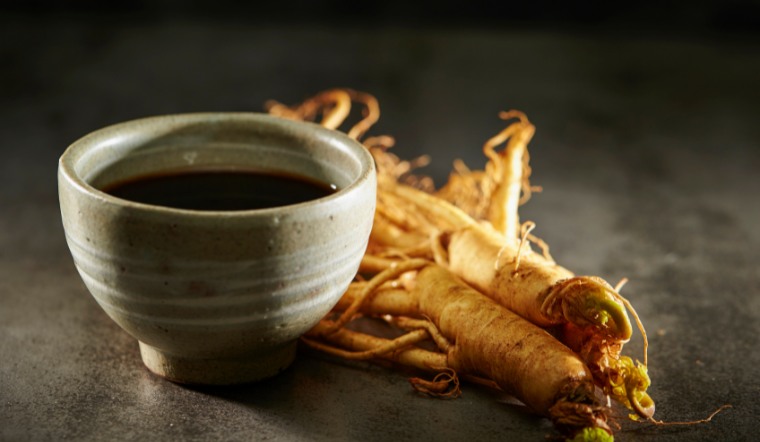
Ginseng tea supports weight loss
Regulates Blood Sugar
A 2014 meta-analysis of 16 different studies conducted by researchers at the University of Toronto in Canada found that supplementing with ginseng led to improved fasting blood sugar levels in participants.
Additionally, research from New Zealand’s Massey University reported that ginsenosides in ginseng may help stabilize insulin and control blood glucose levels, offering potential benefits in managing complications associated with diabetes.
Maintains Youthful Skin and Delays Aging
Ginseng tea is known to enhance skin health and slow down the aging process due to its potent antioxidant properties. The antioxidants present in ginseng protect the skin from free radical damage and environmental aggressors, including UV radiation and sunlight.
Further studies suggest that ginseng can stimulate skin hydration, reduce wrinkles, and promote collagen production, thereby preserving the skin’s elasticity. Moreover, ginseng exhibits anti-inflammatory effects, aiding in the reduction of skin conditions such as acne.
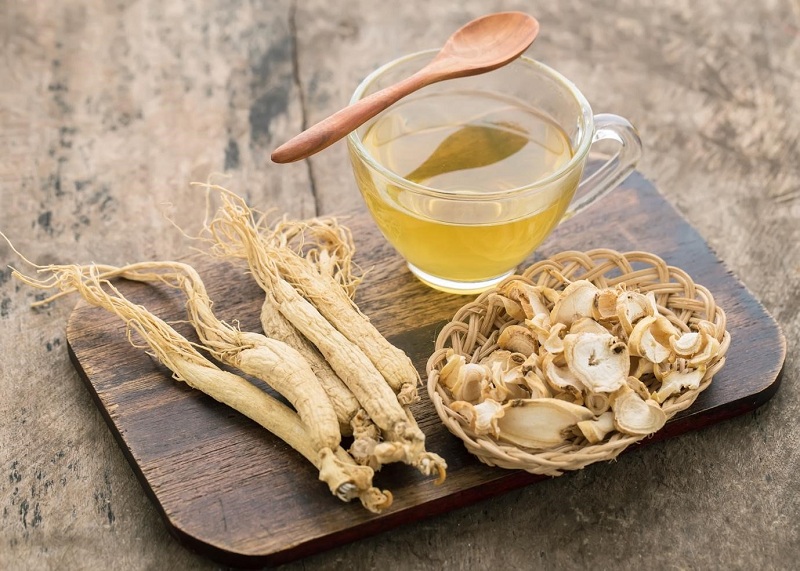
Studies suggest that ginseng stimulates skin hydration
Combats Fatigue and Boosts Vitality
According to a study involving 6,422 elderly participants, regular consumption of ginseng for at least five consecutive years was associated with improved cognitive function. This is attributed to compounds like ginsenosides in ginseng that protect the brain from free radical-related damage. Ginseng has also shown promise in reducing stress, preventing Alzheimer’s symptoms, and alleviating depression and anxiety. Regular intake of ginseng tea can also increase energy levels due to its rich vitamin content, enhancing mental alertness and allowing the brain to function more efficiently.
Enhances the Body’s Defense Mechanisms
Ginseng is known for its ability to combat bacteria, fungi, and viruses effectively. In traditional medicine, ginseng tea is often used as a preventive and supportive treatment for colds and flu. It promotes phagocytic activity and enhances the immune system’s response, aiding the body in fighting off harmful bacteria and viruses, and strengthening immunity. Ginseng tea also plays a role in restoring and regenerating white blood cells, providing strength to various organs in the body.
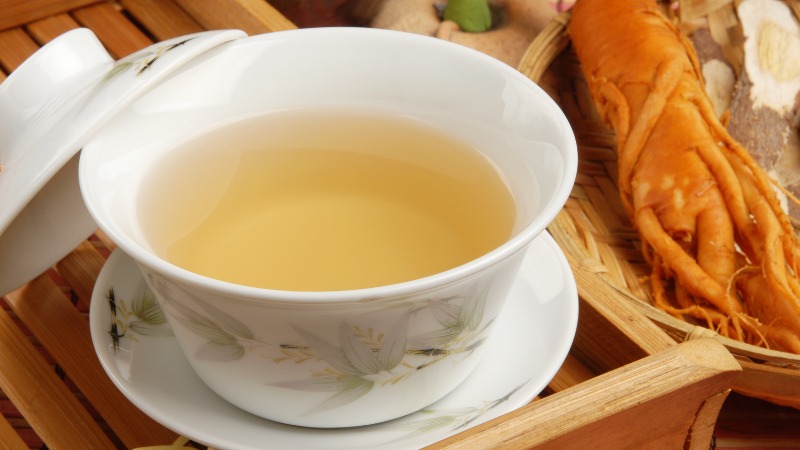
Ginseng tea is used to prevent and treat colds and flu
Cautions in Consuming Ginseng Tea
While ginseng tea offers numerous health benefits, it is not suitable for everyone. Children, infants, pregnant women, and breastfeeding mothers should avoid consuming ginseng tea. Due to its effects on circulatory and respiratory functions, as well as its stimulating action on the nervous system, ginseng tea should not be consumed in the evening to ensure a restful and sound sleep.
Combining ginseng with radishes, coffee, tea, and other stimulants should be avoided as they may reduce ginseng’s effectiveness. Individuals taking prescription medications should discuss with their healthcare providers before incorporating ginseng tea into their regimen to avoid any potential interactions.

























